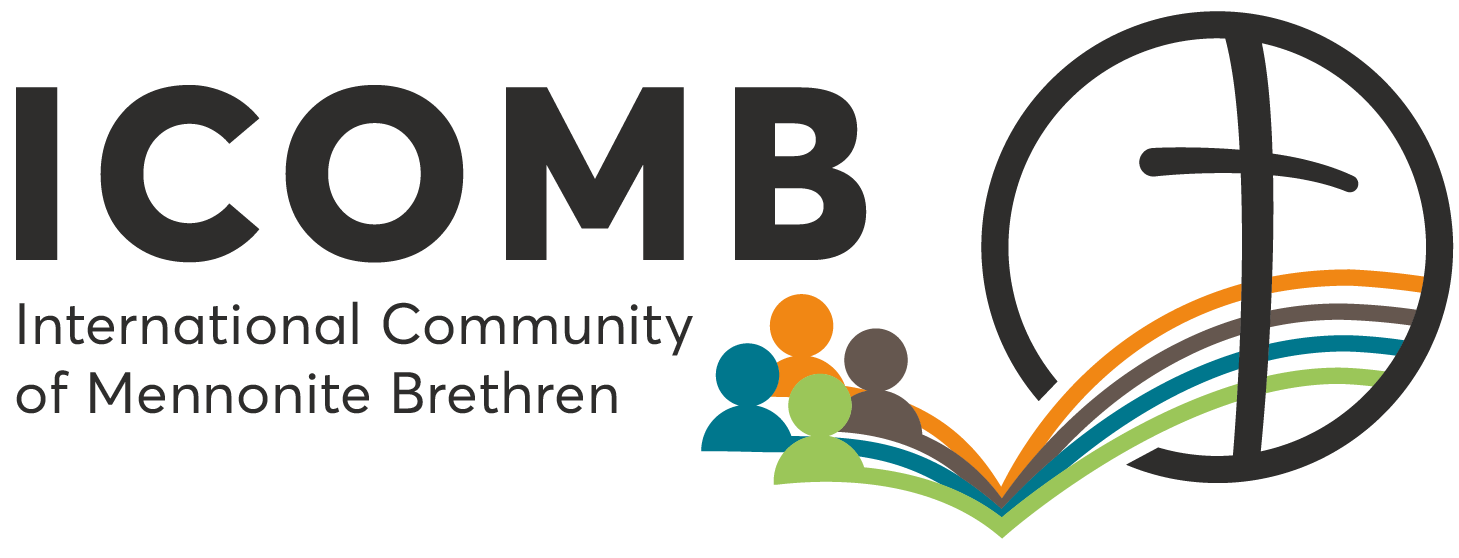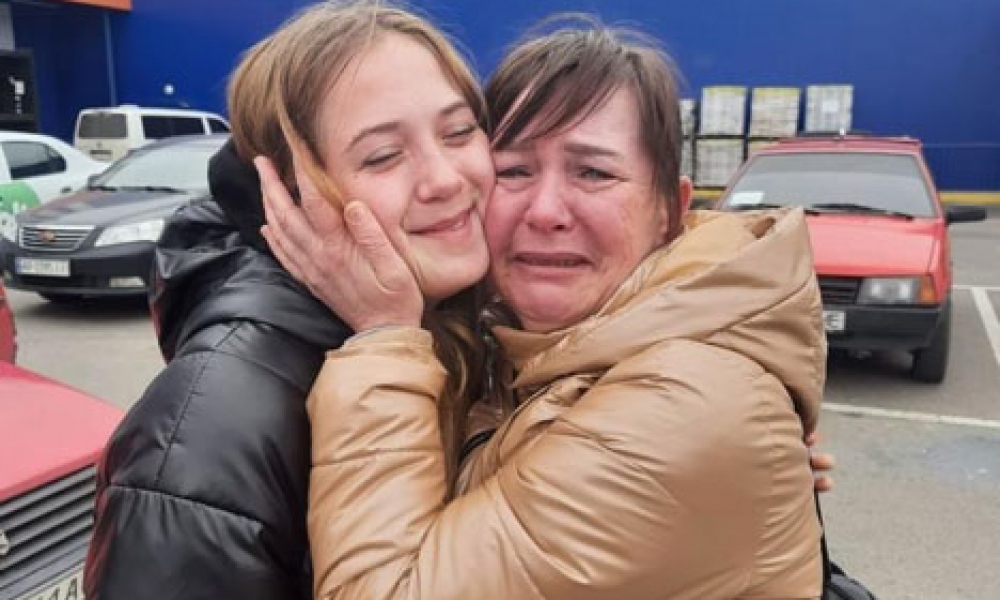Unlike the thousands of refugees fleeing her war-torn country, Yulia was desperate to get back. She had just received news that her sixteen-year-old daughter was trapped in Mariupol and her son, a soldier, had been killed. At the very least, she thought in anguish, she could try to recover his body.
Resolute, she left the safety of Poland and, against the tide of evacuees, Yulia went back to Ukraine.
“I left the same day I heard of my son’s death,” Yulia said. “It was March 29; I will not forget that day.” Setting out for Dnipro, where her son Ignat’s body was being held, she found herself buffeted by bitter-sweet memories. “My son, he was most wonderful,” she said. “When my husband died, Ignat was only nine. He would help always, taking his little sister Victoria to school, catching fish to sell. One time, he sold his motorcycle to buy me a gift for Mother’s Day!”
Memories of her son competed with anxious thoughts about her daughter. Victoria had remained in their small village in southeastern Ukraine when her mother left for Poland, where she worked for over a year to send money to her children. When Russia began their invasion, Victoria went to the city of Mariupol where her grandmother lived. After a time, she tried to return to her village, but found it occupied by Russian soldiers, their house destroyed, their belongings looted.
“She hid in broken-down houses,” Yulia said. “By the time she got back to Mariupol, her clothes were shredded, torn by flying fragments of glass from the cars that were being hit by shells. Things got worse and worse there, and many times she tried to leave the city in a car with others, but each time they had to turn back.” When Victoria finally managed to escape, it was a harrowing week-long journey to Berdyansk. There, she ran to the local collection point hoping for transportation to Zaporizhzhia, where most refugees were gathering on their journey to the western borders. Day after day, she was turned away. Hold on, her mother told her, I am coming.
“I would go to Dnipro to find my son’s body,” said Yulia. “Then, to Zaporizhzhia. I would find a way to save my daughter.”
Arriving in Zaporizhzhia, Yulia was caught in a cold downpour. Her clothes were soaking wet, and she did what she could to protect her small backpack, where a pair of sweatpants were wrapped around her documents and the small Ukrainian flag she had been given in Dnipro, in memory of her dead son. At a collection point, she begged for help in evacuating her daughter from Berdyansk, only to be told that there were no green corridors of safety; no one was willing to risk the drive.
“Wait, wait, they told me. But wait where? I knew no one in Zaporizhzhia, I had nowhere to stay.” Then one of the volunteers made a call to a new shelter he had heard about, and staff at the New Hope Center responded right away. They had just renovated their center to accommodate refugees, with offices as dorms, classrooms as storage rooms, and a shower. The center was a ministry to families in crisis; war had brought an entirely new level of crisis, and staff were determined to rise to the challenge.
“They sent a man named Yuri,” Yulia related, “a man led by God, sent to me by God.” Yuri took Yulia to the center where, overwhelmed and exhausted, she fell sick. The kindness with which she was cared for still brings her to tears. “I will remember them,” she said, “all my life.”
At the New Hope Center, volunteers worked to find some way to evacuate Yulia’s daughter from Berdyansk. As the days dragged on, Yuri and others prayed with her, encouraging her to trust in God. Finally, she was told that her daughter was on route to Zaporizhzhia.
“I went right away to pray with Yuri,” Yulia said. “We prayed all evening, then again all the next morning. We prayed for her to pass every checkpoint. Each time she did, she would call. Then we looked at the map and prayed for the next checkpoint.”
Mother and daughter were reunited at last on Saturday, April 23, one day before Orthodox Easter Day. They embraced fiercely, tears streaming down their cheeks. Like any mother, she immediately worried that her child was too thin.
“My daughter had been starving!” she said forcefully. “No food, hiding in basements, sick with fever! Dead people everywhere – adults, children. This we had seen before, in 2014, but then I had been with her. I could not bear to think of her going through this without me!”
Not long after, New Hope staff helped Yulia and her daughter to leave Ukraine and return to Poland. Although trauma has left Victoria constantly afraid and unable to sleep, the resiliency of the Ukrainian people is also evident as mother and daughter work to forge a future for themselves. “I will work, she will study,” Yulia states firmly. “We are together. I want my daughter to heal, to grow, to know beauty in her life.” Beauty has, she admits, been in short supply lately.
“When I was at the New Hope Center, they showed me tulips in a jar. What? When had tulips bloomed? I was constantly crying and worried, I did not see this happen. I went outside – birds were chirping, the grass was already green. Spring had come, and I had not even noticed! Next time, I want us to notice, to see when spring comes back to Ukraine.”

